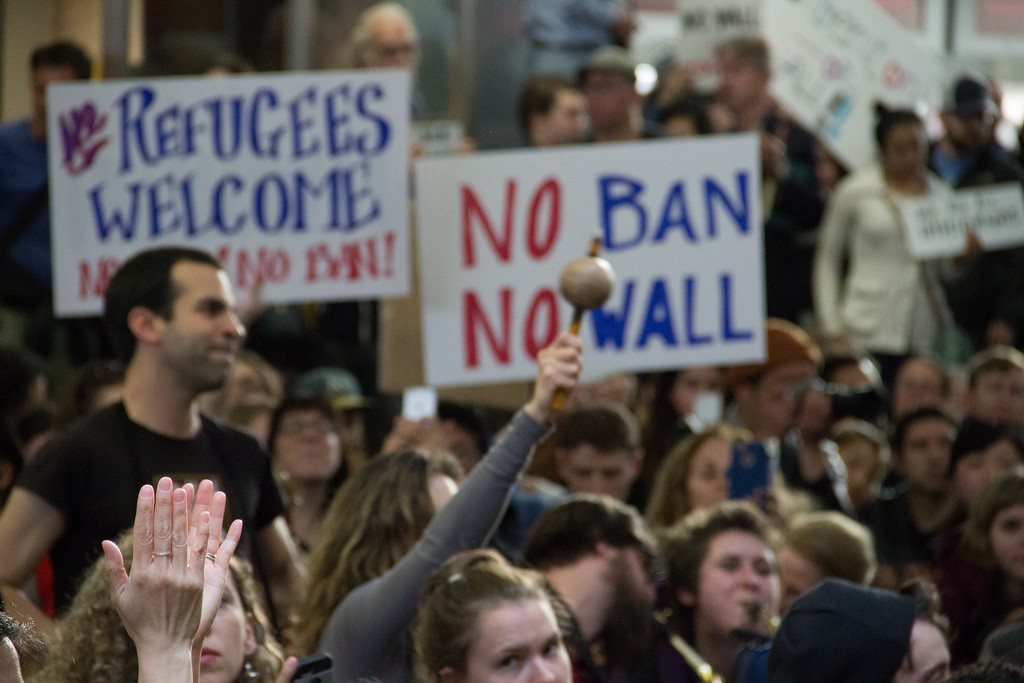
On May 8, the U.S. Court of Appeals for the Fourth Circuit heard oral arguments in the case challenging President Trump’s travel ban for individuals traveling from Muslim-majority nations, one of two ongoing legal battles over the President’s March 6 executive order. This executive order is the second attempt from the administration to restrict entry of Muslim travelers into the U.S. and to severely curb the U.S.’s refugee resettlement program. The administration withdrew its appeal to case challenging the first version of the executive order after it was halted in the Ninth Circuit Court of Appeals on the basis that it discriminated against Muslims, and following the issuance of a revised order.
While the second version of the executive order was rewritten to avoid this critique, it nonetheless was halted by federal judges in Hawaii and Maryland. These judges expressed the view that the intent behind the new order was the same as the original version: to unfairly target Muslim travelers. The government has appealed both of these rulings, resulting in simultaneous legal proceedings in the Fourth and Ninth Circuit Courts of Appeals. It is possible that these cases will eventually make it to the Supreme Court, especially in the event that the two courts rule differently (the Supreme Court often takes cases to resolve a circuit split and ensure that federal law is being applied in the same manner across the country).
Lawyers arguing the cases from the American Civil Liberties Union have argued that the executive order violates the First Amendment’s Establishment Clause, which prohibits government preference of one religion over others, or of religion over non-religion. The First Amendment has ensured the separation of church and state and freedom of religion, two core American principles, and allowed religious minorities to live and practice according to the teachings of their faith openly and freely in this country for centuries. As Jews, we understand that the guarantee of religious freedom in the United States has allowed our communities to thrive, and that this right must be protected for all.
Amid these ongoing legal battles, there has been a recent win in Congress for the U.S. refugee resettlement program. On May 5, President Trump signed a spending bill to fund the government through the end of Fiscal Year 2017 (September 30, 2017). This bill included funding for the Office of Refugee Resettlement, the office responsible for resettling newly arrived refugees in the U.S., at levels equal to the previous fiscal year. The final version of the bill also included full funding for vital programs that help refugees in the U.S. and around the world, including $3 billion for Migration Refugee Assistance. These funds provide humanitarian assistance for refugees overseas. This funding is essential for the U.S. to meet its obligation to aid to the world's most vulnerable populations.
For the latest updates on this issue, check out the RAC’s refugee issue page. You can also take action and urge President Trump to rescind his discriminatory travel ban and urge Congress to continue to support robust refugee resettlement.
Related Posts

World Refugee Day 2022

Welcoming the Stranger: How Reform Congregations are Taking Action for Refugees


